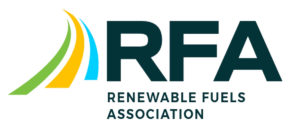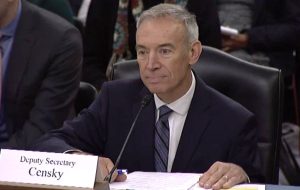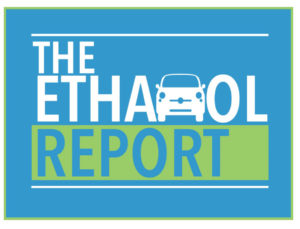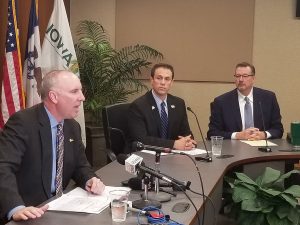 The National Biodiesel Foundation has been awarded U.S. Environmental Protection Agency funding for its 2020 National Clean Diesel Project. In partnership with Iowa Department of Transportation (Iowa DOT), Optimus Technologies, and Renewable Energy Group (REG), the project supports the purchase of three new replacement snowplows that will operate on B100 and retire older more polluting vehicles. It is the first successful Diesel Emissions Reduction Act (DERA) grant to utilize the Optimus B100 technology.
The National Biodiesel Foundation has been awarded U.S. Environmental Protection Agency funding for its 2020 National Clean Diesel Project. In partnership with Iowa Department of Transportation (Iowa DOT), Optimus Technologies, and Renewable Energy Group (REG), the project supports the purchase of three new replacement snowplows that will operate on B100 and retire older more polluting vehicles. It is the first successful Diesel Emissions Reduction Act (DERA) grant to utilize the Optimus B100 technology.
 The new B100-optimized vehicles will be used in Des Moines and Ames, Iowa to provide snow removal service for rail yards, terminals, and key distribution centers. REG will provide the B100 refueling infrastructure for the fleet. All replacement vehicles will use Optimus Technologies’ Vector technology, allowing the vehicles to operate exclusively on 100% biodiesel—other than startup and shutdown—to optimize fuel savings and emissions performance.
The new B100-optimized vehicles will be used in Des Moines and Ames, Iowa to provide snow removal service for rail yards, terminals, and key distribution centers. REG will provide the B100 refueling infrastructure for the fleet. All replacement vehicles will use Optimus Technologies’ Vector technology, allowing the vehicles to operate exclusively on 100% biodiesel—other than startup and shutdown—to optimize fuel savings and emissions performance.
“Optimus’ patented technology is deployed with fleets across the country leading the efforts to reduce emissions and transition to low carbon fuels. Our technology is ideal for demanding applications like snow removal operations and refuse collection that aren’t suitable or practical for electrification,” said Colin Huwyler, CEO of Optimus. “We applaud Iowa Department of Transportation’s leadership in being the first DOT in the nation to deploy B100 within their fleet and are excited to emphasize that the thousands of gallons of diesel fuel being offset will be replaced with biodiesel that is produced right in Iowa.”
Huwyer spoke about the B100 technology at the 2018 National Biodiesel Conference. Listen here:
Colin Huwyer, Optimus Technologies









